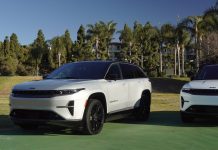Elon Musk is on record as saying it would hurt competitors more than Tesla.

Credit: Getty Images
Some electric vehicles and plug-in hybrids are set to get less affordable from next year, it seems. As expected, the incoming Trump administration has set its sights on killing off the IRS clean vehicle tax credit, according to a report in Reuters this afternoon.
The clean vehicle tax credit was overhauled as part of President Joe Biden’s signature climate legislation. Until then, the size of a plug-in vehicle’s tax credit was based on its battery capacity, with a credit of up to $7,500 available. But from 2023 the rules changed, requiring a certain amount of domestic production to qualify, as well as adding price and income caps to address criticism that the tax credit mostly subsidized the already-wealthy.
Ars Video
How Scientists Respond to Science Deniers
Far fewer vehicles are now eligible for the rebate at time of purchase, particularly after the US Treasury Department got tougher about Chinese content, although a loophole means that none of these conditions apply to leased EVs.
Ending the tax credit is not something the incoming administration can do via executive action—Congress controls government spending, and this would require new legislation. But the budget reconciliation process results in bills that cannot be filibustered, and Reuters says that the Trump transition team will likely use this route as part of a larger revamp of tax laws.
Tesla was a major beneficiary of the new clean vehicle tax credit; under the previous scheme, an OEM was only eligible until it sold its 200,000th plug-in vehicle, at which point the credit available to its customers began to sunset. Tesla—which exclusively sells plug-in vehicles—was unsurprisingly the first to reach this threshold, at which point its EVs became more expensive than competitor cars. But the sales cap was eliminated under the new rules.
One might expect the company would be up in arms over this proposal. But according to Reuters, that’s not the case—Tesla is in favor of ending the clean vehicle tax credit, and CEO Elon Musk has previously said such a move would be far more damaging to rival companies than to Tesla.




